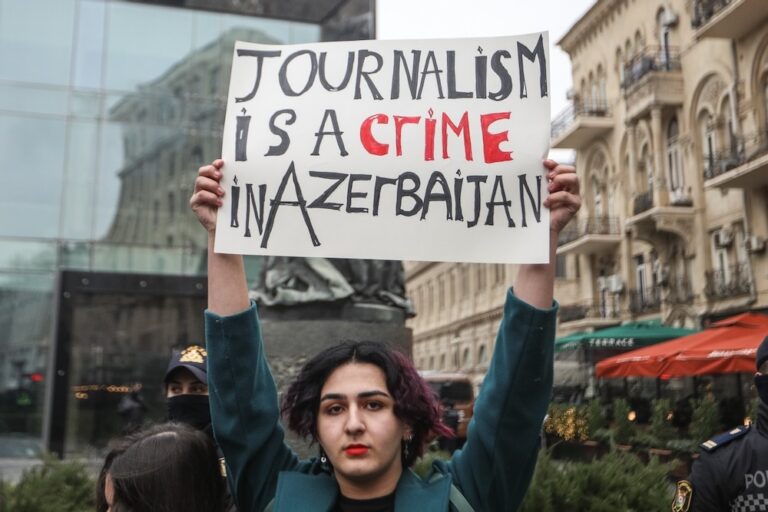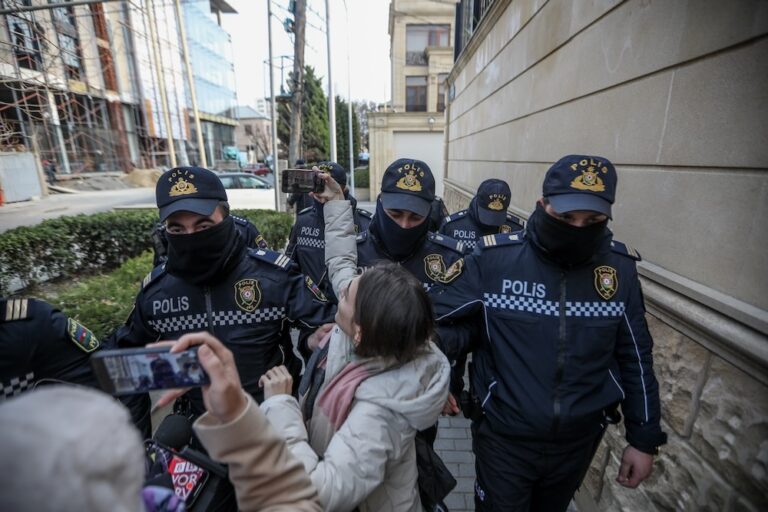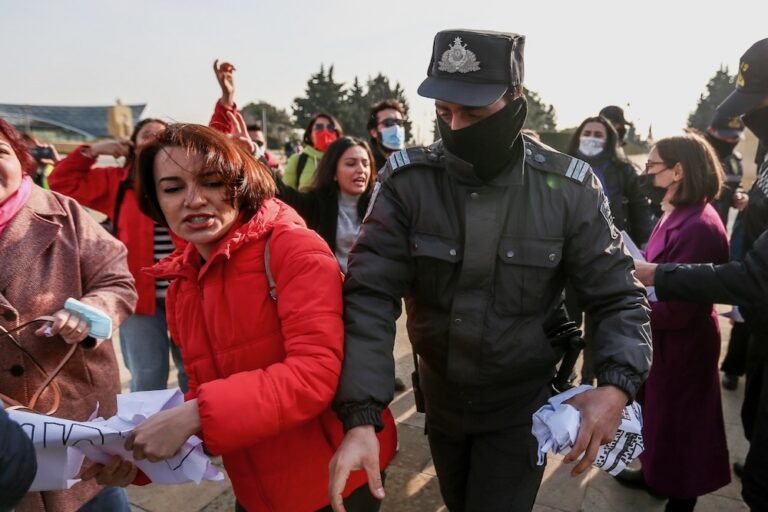"This is a great day for press freedom and so many organizations have fought hard over the past several years to secure his release, especially those on the ground in Azerbaijan," IPI said.
(IPI/IFEX) – 26 May 2011 – Jailed Azerbaijani journalist Eynulla Fatullayev has been pardoned and freed, Amnesty International confirmed on its Twitter feed today, following advocacy by the International Press Institute (IPI) and its Azerbaijan National Committee, as well as other international organizations, including the OSCE.
In March, nine of IPI’s World Press Freedom Heroes honoured for their courage and resilience in fighting for press freedom – Faraj Sarkohi of Iran, Daoud Kuttab of the Palestinian Territories, Nizar Nayyouf of Syria, Lydia Cacho Ribeiro of Mexico, Doan Viet Hoat of Vietnam, Adam Michnik of Poland, Juan Pablo Cardenas of Chile, Fred M’membe of Zambia and Akbar Ganji of Iran – added their names to a letter to Azerbaijan President Ilham Aliyev seeking amnesty for Fatullayev.
News reports said Fatullayev’s name was included in an amnesty decree in honour of Azerbaijan’s Republic Day on 28 May.
IPI Director Alison Bethel McKenzie, who pressed for Fatullayev’s release in talks with the Azerbaijani presidential administration during a February visit to Baku, said: “I am overjoyed to hear of the release of Eynulla Fatullayev, whose imprisonment appears to have been a direct consequence of his work as a critical, independent journalist. We were particularly outraged at the fact that he remained in prison even after a European Court of Human Rights (ECHR) ruling ordered his release and financial compensation.”
“This is a great day for press freedom and so many organizations have fought hard over the past several years to secure his release, especially those on the ground in Azerbaijan,” she added.
Fatullayev’s release followed a visit to Azerbaijan earlier this month by OSCE Representative on Freedom of the Media Dunja Mijatović, who met with the journalist in prison. Mijatović also sought Fatullayev’s release during talks with President Aliyev on more than one occasion.
“I welcome the release of Eynulla Fatullayev. This is great news for Eynulla Fatullayev, his family, friends and colleagues in Azerbaijan and abroad,” Mijatović said. “This is a strong signal for the whole OSCE region and I urge all OSCE participating States to release all imprisoned media workers.”
Fatullayev, founder and editor-in-chief of the newspaper Gündelik Azerbaycan, was first incarcerated in April 2007 on a charge of criminal defamation for an article he wrote in 2005. He was later charged with threatening terrorism over a March 2007 article. Found guilty, he was sentenced to eight-and-a-half years in prison.
Following Fatullayev’s appeal to the ECHR, authorities in December 2009 said they found heroin in his cell, and he was sentenced to an additional two-and-a-half years in prison. Many believed the drug charge was fabricated to prevent his release in the event that the court in Strasbourg found that his rights had been violated.
The court did so by a 6-1 vote in spring of last year, ruling that authorities violated Fatullayev’s rights to freedom of expression, a fair trial and the presumption of innocence. The court rejected Azerbaijan’s appeal in October, but Azerbaijani authorities continued to hold the journalist on the drug charge and maintained that they were in compliance with the ECHR decision.


